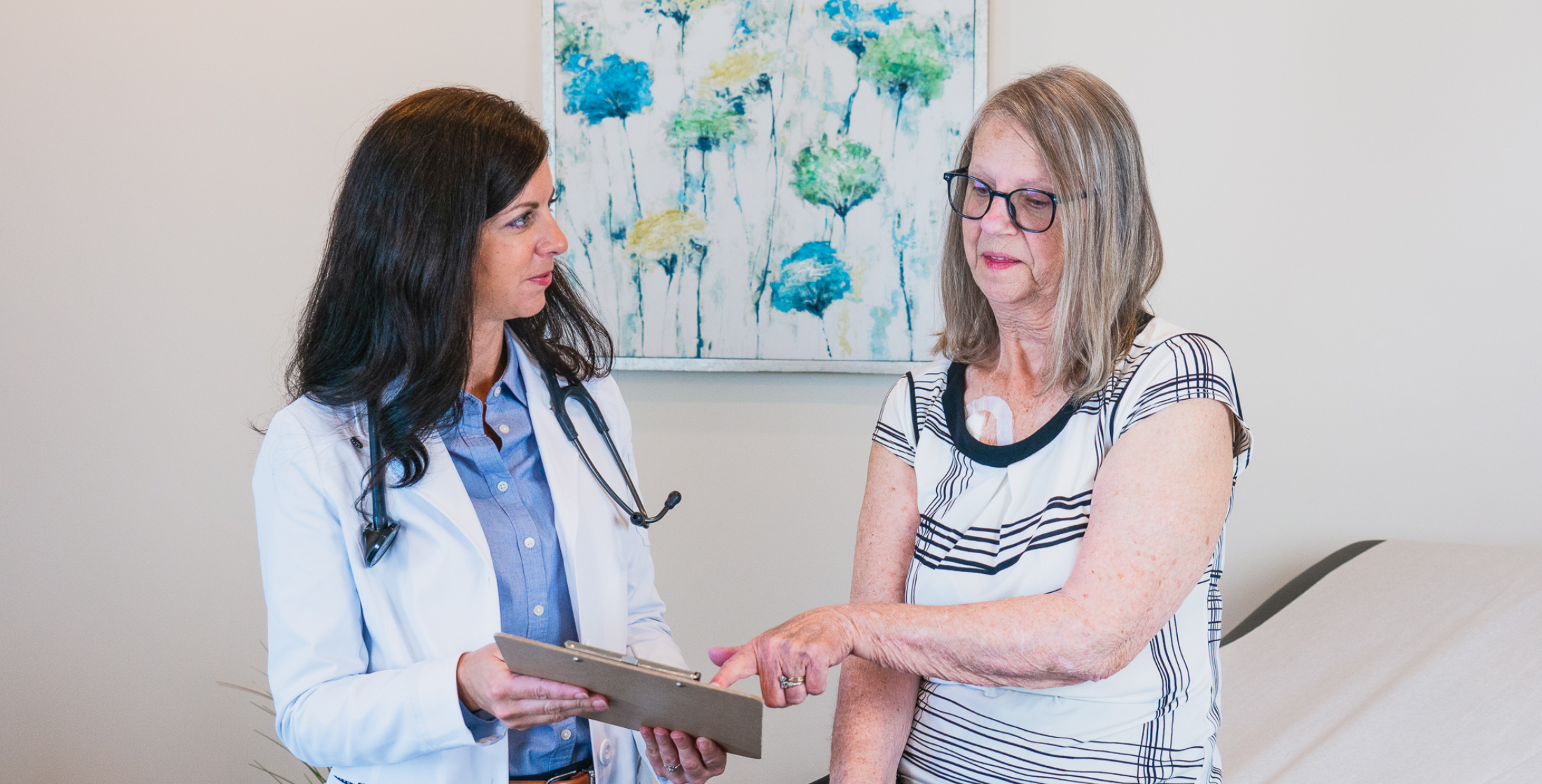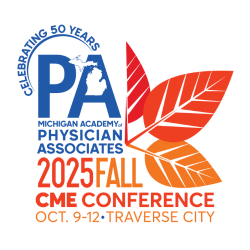Guide for Hiring a PA
Understanding PAs Practice Medicine.
Physician Associates (PAs) are health care professionals licensed in the state of Michigan to practice medicine according to the terms of a Practice Agreement. The PA medicine model allows for flexibility and enhanced delivery of quality health care. PAs practice medicine according to their education, training and experience, allowing treatment of a diverse population of patients and medical conditions. Only PAs and Physicians practice medicine.
Physician Associates have proven they are prepared to diagnose, treat, coordinate patient care, provide high-quality health care and enhance patient satisfaction, all the while, increasing the efficiency of their medical practice. PAs excel in an atmosphere of mutual respect as a member of a healthcare team and autonomously.
PAs are educated to practice medicine in the medical model designed to complement physician training. The PA profession requires at least two years of post-graduate education and students typically have patient care experience prior to admission to a PA program. A PA student has a rigorous didactic first year of school followed by a second year of clinical rotations.
PAs routinely:
- Obtain medical histories and conduct physical exams
- Diagnosis and treat illnesses
- Order and interpret tests/studies
- Counsel on preventative health care
- Assist on all surgical procedures
- Develop treatment plans
- Write prescriptions
The Flexibility of PAs and the training they received, allows them to function autonomously:
- PAs are educated as generalists and recertify as such
- PAs collaborate with physicians and other healthcare professionals to deliver team-based quality health care
- PAs manage patients, provide treatment plans and preventive health care
- PAs increase access to health care and yield positive patient outcomes
- PAs are usually the first and last health care professional a patient sees and receives health care from
During training, PA students are designated PA-S; the use of PA-C is limited to those PAs who are certified and in compliance with the regulations of the NCCPA. A PA program graduate must pass the certifying examination- PANCE, offered by the NCCPA; which is required for licensure in all states. Once licensed, a PA may practice in any medical setting- from primary care medicine to surgical sub-specialties and first assisting at surgery.
Because of their broad range of training and flexibility, PAs are able to work in any facet of medicine and take care of patients’ from the simplest patient concern to extremely complex medical conditions that a patient may present with. A physician assistant is licensed to practice medicine and may obtain a DEA registration and Michigan Controlled Substance License (CSL), allowing them to comprehensively manage care for their patients. The collaboration of PAs with the health care team helps to:
- Increase patients’ access to quality healthcare
- Enhance patient satisfaction for services provided
- Improve patient flow and practice efficiency
- Increase revenue for the practice
- Decrease patient wait times, improving patient satisfaction and retention
- Allow more flexibility in the schedule of their employers
Physician Associates are only limited in their duties by a practice agreement and their education, training and experience. The Practice Agreement guidelines are developed by the PA and verified by a participating physician, specific to their practice setting. In Michigan, PAs are considered full prescribers subject to the terms of a practice agreement. PAs are required to obtain a controlled substance license (CSL) prior to prescribing controlled substances.
The physician associate profession is unique in the flexibility that a PA provides in the delivery of quality health care. PAs can ease the burden of complex patients, increase revenue for a practice and most importantly, increase a patient’s access to health care and their satisfaction.
Understanding what your practice needs and knowing that a PA will help fill that need is the first step. You will need to create a job position and description that reflects your practice needs, with the involvement of the physician(s) who will be working with the PA. Next, you will need to determine if you seek a new PA graduate or one with experience. Will this PA be working only in a clinic/office-type setting and/or will they need credentials to round at a hospital or assist in surgery? The office staff will need to understand the role that the PA will be performing and understand the differences in billing for PA services for all insurance types. The PA will need to obtain an NPI number from CMS for billing services for Medicare patients. All Michigan-payers now credential PAs to be the Primary Care Provider for their patients.
The compensation for a physician associate can vary from practice to practice, from area of medicine to surgery and from geography and experience. The PA profession has experienced an increase in need for PAs due to physician shortage and curbing of resident hours. This has led to a higher demand for PAs and subsequently, an increase in compensation for their services. The benefits package is the other half of compensation equation that will help attract a PA to your practice. Benefits offered can include:
- Continuing Medical Education funds and days
- Reimbursement for licenses, fees and professional dues
- Paid vacation and sick leave
- Professional Liability and Disability Insurances
- Individual and Family Health, Dental and Vision Insurances
- Pension or Retirement funding
- Reimbursement for additional training (certification, BLS, ACLS, etc.)
There are several avenues to explore to find a physician associate that would fit best for your practice or institution. MAPA has a ‘Job Central’ where you can post an open position for a PA and review submitted resumes. Click here to access Job Central.
The PA profession was founded on a collaborative initiative and the flexibility of the profession allows for a best fit scenario for the evolving landscape that healthcare is today. The PA profession is committed to the team practice of medicine and the efficient delivery of quality health care. The most effective clinical teams are those that utilize the skills and abilities of each team member most efficiently. The team of physicians and PAs extend healthcare delivery for better outcomes in patient care and overall improved patient satisfaction.



